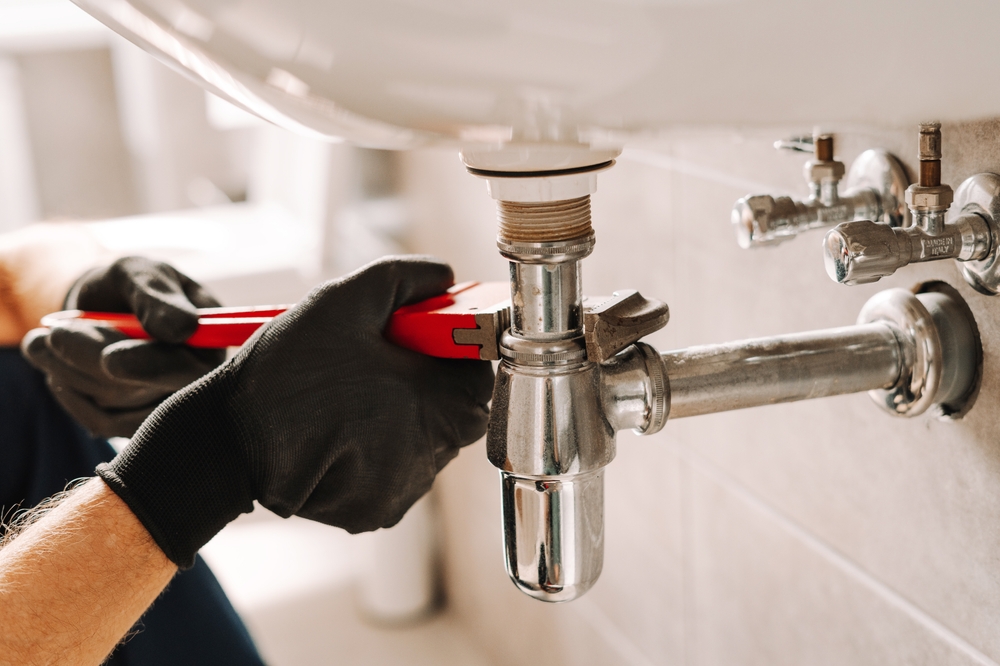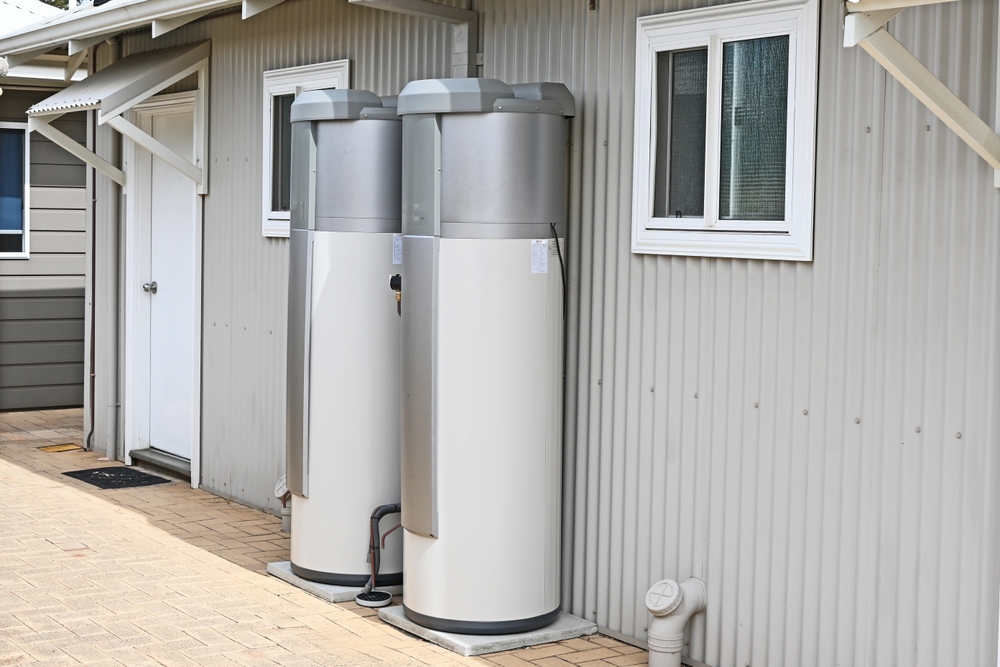There’s a certain satisfaction in sorting things out yourself. The moment when a leaky tap finally stops its rhythmic dripping or the kitchen sink drains like it’s supposed to can feel oddly heroic. DIY plumbing can be rewarding, provided everything goes to plan. But the gap between a minor fix and a major disaster is often narrower than you’d think.
Some jobs around the house are perfectly manageable with a bit of patience and the right spanner. Others, however, are ticking time bombs wrapped in copper pipe and questionable confidence. Knowing which is which is not just helpful, it’s essential. Because while it’s easy to believe you’re two steps away from becoming a fully fledged plumber, there are situations where the smartest move is picking up the phone rather than the tools.
DIY Plumbing Jobs: Safe, Simple and Satisfying
There are some plumbing tasks that even the least handy among us can manage without summoning professional reinforcements. These are the everyday fixes that don’t involve poking around in walls, tampering with pressurised systems, or anything likely to cause structural regret.
Fixing a Leaky Tap
That constant drip from the kitchen tap might seem minor, but over time, it’s not just wasting water; it’s also slowly wearing down your patience. Fortunately, in most cases, the cause is a worn washer or ceramic disc, both of which are inexpensive and easy to replace. The trick is knowing how to dismantle the tap, swap the part and reassemble it without launching a spring into the abyss behind the sink. One golden rule applies here above all: always turn off the water supply before starting. Nothing ruins the DIY spirit faster than a sudden faceful of cold water.
Unclogging a Slow or Blocked Drain
Sinks and showers that drain more slowly than they used to are often suffering from mild blockages. These are typically caused by the unholy trinity of hair, grease and soap scum. A basic plunger, a plastic drain snake, or a natural drain cleaner can usually get things moving again. It’s a good idea to wear gloves and prepare for some unpleasant discoveries. If the blockage returns frequently or resists all efforts to clear it, that’s a sign of something deeper going on. In older Wellington homes, especially, repeated clogs can point to more serious issues in the plumbing system.
Replacing a Showerhead
This is a classic five-minute win. If your shower feels more like standing under a trickle than a cascade, a new showerhead can make a noticeable difference. Removing the old unit and screwing in a shiny new one is a task most people can handle with just a wrench and a bit of thread tape to prevent leaks. While you’re at it, cleaning the pipe connection and checking for limescale build-up is a simple way to improve water pressure without replacing anything major.
Sealing Around Sinks or Taps
Cracked or peeling silicone sealant around basins, bathtubs, or kitchen taps might not scream “plumbing emergency”, but over time, it can lead to moisture creeping into walls or cabinetry. Removing old sealant and reapplying a clean, watertight line is a quick DIY job that helps prevent rot and water damage. Just be sure the surface is dry and clean, and that you give the new sealant enough time to cure before running the tap or using the sink again.
These sorts of tasks are manageable and low risk, as long as you follow basic instructions and don’t rush. However, it’s important to recognise where casual confidence ends and genuine expertise begins.
When to Call a Professional: Jobs That Should Never Be DIY
While there’s a certain pride in fixing things yourself, there are moments when rolling up your sleeves can do far more harm than good. Plumbing systems are deceptively complex, and what looks like a small job on the surface can easily snowball into something much messier and more expensive. Some tasks require not only experience, but proper certification, specialised tools and a working knowledge of building codes and regulations.
Persistent or Worsening Blocked Drains
You’ve tried plunging, snaking, and even whispering sternly at the sink, but the water is still struggling to drain. If a blockage keeps coming back or is affecting multiple drains in your home, it’s not something you can fix with supermarket drain cleaner. The problem is likely deeper in your pipework or even in your sewer line, which can’t be safely accessed without professional equipment. Our drain unblocking team at Harbour City Plumbing uses high-pressure jetting and drain cameras to diagnose and resolve these issues properly, without guesswork or chemical cocktails.
Leaks You Can’t See or Identify
Not all leaks show up as dramatic bursts or puddles on the floor. Some lurk inside walls, under floors or above ceilings, quietly damaging your home while remaining largely invisible. Signs like damp patches, warped skirting boards, mouldy smells or bubbling paint usually mean water is going where it shouldn’t. Poking around in search of a hidden leak can lead to more damage, not less. Trained plumbers know how to pinpoint the source using non-invasive methods and can fix it properly before it becomes a structural headache.
Installing or Replacing Toilets, Sinks and Showers
Fitting a new toilet is harder than it looks. There’s pipe alignment, waterproof sealing, pressure testing and legal compliance to think about. One misstep can result in a leaky base, backflow issues or a fixture that wobbles every time you sit down. The same goes for showers and sinks, which often involve connecting multiple water and waste lines. Professional plumbers ensure that every connection is tight, safe and built to last, without you having to stand back and wonder if it’s all about to go horribly wrong.
Hot Water Cylinder Repairs or Replacements
When your morning shower turns unexpectedly cold, your hot water cylinder might be to blame. These systems are highly pressurised and often connected to both water and electricity, making them dangerous to tinker with unless you’re fully qualified. Whether it’s a faulty thermostat, a leaking valve or a complete replacement, this is absolutely a job for a professional. Attempting repairs yourself could void warranties, cause injury or even create compliance issues with insurance.
Renovations and New Plumbing Installations
Doing up your bathroom or adding a new laundry area might seem like the perfect opportunity to take the DIY route, but if it involves altering existing pipework, stop right there. Any major changes to your plumbing must comply with New Zealand building codes and council regulations. Getting it wrong doesn’t just mean water damage, it could mean fines, insurance problems and expensive rework later. A qualified plumber will ensure the layout is functional, legal and safe, and can provide the necessary documentation if inspections are required.
Need a Professional?
Some plumbing problems simply aren’t meant to be solved with a wrench and good intentions. Knowing your limits isn’t a failure; it’s smart. It means avoiding property damage and botched repairs.
That’s where we come in. At Harbour City Plumbing, we’ve been helping Wellington households get it sorted properly for years. Whether you’re dealing with a stubborn blockage, a questionable installation attempt or just want something done right the first time, we’re only a phone call away.
Ready to fix it properly? Contact us today and let the professionals handle it.





